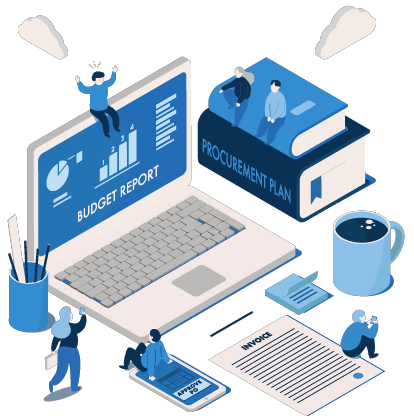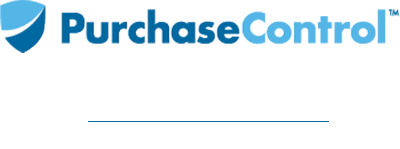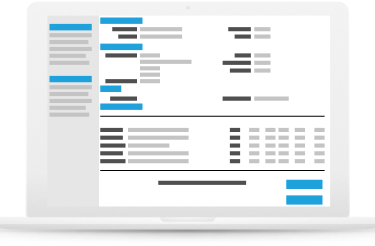If an army, as Napoleon Bonaparte is reported to have said, marches on its stomach, then a successful business might be said to march on its procurement. When the procurement function works smoothly, everything from production to marketing to customer support flourishes. But when bottlenecks in the procurement process occur, even a small delay can spiral into a costly disaster if left unchecked. Experienced procurement professionals know that effectively managing the procure-to-pay (P2P) process means keeping bottlenecks to a minimum—and unclogging the works as quickly as possible when one crops up.
Common Bottlenecks in the Procurement Process
Preventing and correcting procurement bottlenecks begins with identifying the areas where they most commonly appear. While the public sector and private industry often have very different goals and needs, procurement departments of all sizes will likely find themselves challenged by bottlenecks in four critical areas:
- Approval Processes and Workflows
- Supplier Relationships/Supply Chain Management
- Spend Analysis
- Lead Time Management
With the right tools, these four areas of the procure-to-pay process present procurement teams with rich opportunities for process improvement and increased productivity and efficiency.
“It’s important to include both tools and techniques in your plan to eliminate procurement bottlenecks, because even the most powerful tools can’t solve problems if they’re not leveraged properly, and brilliant controls can be hampered by out-of-date software, poor integration, or paper-based procurement.”
Unblocking the Bottlenecks
The common thread at the heart of addressing procurement bottlenecks is the strategic use of both process improvement and tech tools like procurement software to expand the capabilities of both your human resources and existing tools like enterprise resource planning (ERP) software.
It’s important to include both tools and techniques in your plan to eliminate procurement bottlenecks, because even the most powerful eProcurement tools can’t solve problems if they’re not leveraged properly by staff trained to use them. And brilliant controls can be hampered by out-of-date software, poor integration, or waste from paper-based procurement.
Approval Processes and Workflows
Delays and errors in the approval process create a chain reaction of inefficiency and lost productivity that can snowball into a crisis. Suppose a massive order for raw materials is delayed because the paper approval form was first routed to the wrong person, returned to the purchasing department, and then finally routed to the correct staff member—who just left on holiday. The approval form languishes, and without a contingency workflow or eProcurement tools like mobile access and reminder alerts, the approval process grinds to a costly halt.
Denied materials, production can’t meet quota or customer demand, and has to make an emergency order from an untested supplier. Accounting loses out on valuable promotional discounts from the supplier for orders placed within certain quantity and dates (and may have to pay for other orders later than anticipated due to cash flow problems). Customers whose products are suddenly on backorder may demand partial refunds or even cancel their orders altogether.
The end result? Your company has lost not only valuable revenue, but goodwill with your customers and suppliers.
To shatter the bottlenecks in this area:
- Map out your workflows. Identify pain points, including single points of failure for decision-making. Streamline workflows to reduce both staff involved and the number of steps required. Create contingencies to ensure a single link doesn’t snap the whole chain.
- Upgrade to cloud-based eProcurement. Eliminating paper-based procurement doesn’t just reduce waste, resource demand, and expense. Artificial intelligence (AI) lets you take the workflows you’ve built and automate them, reducing unnecessary steps.
AI also adds mobile and remote access, centralized document management, and automated reminders to ensure everything gets the attention it deserves when it’s needed most.
Supplier Relationships and Supply Chain Management
Strategic sourcing generates both cost savings and value for your whole company. But the benefits that come with a well-managed supply chain also include strong, productive relationships with suppliers. A streamlined supply chain makes it easier to build these relationships, and enjoy benefits like opportunities for shared initiatives, as well as support and flexibility if a crisis should occur.
Keep procurement bottlenecks at bay in this area with:
- Constant communication. Miscommunication is the death of effective relationships. Ensure your vendors receive timely and complete updates about any changes to orders. Integrate them with your eProcurement system’s communication system to allow for shared (but still gated) access to essential information and ensure their familiarity with your processes and toolset. Don’t wait for Request for Proposal (RFP) events; take a proactive stance and engage with your suppliers regularly to build rapport, and work with your most important suppliers to maximize your buying power and a helping hand when there’s a bottleneck looming.
- Strategic, flexible supply management. A sprawling supply chain, riddled with single-source providers of low-value but mission-critical items (so-called “bottleneck items”), is a disaster in the making. Review your existing supply chain for redundancies and single points of failure, then create contingencies to leverage the former and eliminate the latter. Review and update your processes for selection of potential suppliers and vendor management, including the Key Performance Indicators (KPIs) used to measure vendor performance and return on investment (ROI). As with your approval processes, automation and AI can greatly simplify these efforts, maximizing efficiency and savings while reducing risk.
Spend Analysis
Transparency and control are the backbone of accurate spend analysis and planning. If your procurement department and accounts payable team don’t have full spend visibility, you could find yourself facing delays created by duplicate orders, fraud, and rogue spend. Inaccurate spend data means planning and forecasts will also be inaccurate, potentially hamstringing future projects and wreaking havoc during financial reporting and audits.
Banish bottlenecks in your spend by:
- Reviewing and streamlining internal spend process. Update your processes and toolkit as soon as possible. An automated procurement solution gives you full spend visibility and the ability to:
- Create leveled catalogs
- Control buying and approval roles
- Identify preferred vendors
- Minimize rogue spend and fraud
- Instantly access, manipulate, and analyze all transaction and spend data for accurate and complete reporting, forecasting, and audits
- Integrate your spend control and transparency efforts across your organization. While eProcurement software can make gaining control of your spend easier, old-fashioned cooperation and communication will ensure it sticks. Training, informational seminars, and support from both IT and procurement will ease the transition and ensure everyone is in the loop and ready to do their part.
Lead Time Management
The notion that time is money is especially true in procurement. Everything from safety stock inventory to production of physical goods relies on accurate, and minimal, lead times. Receiving the goods your business needs, when it needs them, is crucial to meeting the needs of your customers and achieving your goals for growth and profitability.
You can keep bottlenecks from choking your lead times by:
- Continuously reviewing your lead time needs and processes. Review your production and procurement workflows to identify current lead times for everything in your supply chain. This will give you a foundation for comparison as you implement improvements. Sales and production data will also help you identify those areas where reduced lead times can generate the most savings. Machine learning via AI can be especially helpful in this regard, identifying trouble spots and potential changes to your internal workflows and supplier choices to slash lead times.
- Use contract management tools to secure and enforce lead times. Armed with an accurate understanding of your lead time requirements, you can build lead time management directly into every contract with every Proactive and friendly supplier relationship management will help ease any discomfort that may arise from legally binding, agreed-upon lead times.
Consider including specific terms such as:- Lead times for each stock number and order
- Penalties for delayed shipments, damaged goods, etc.
- Notification requirements for stock shortages, price changes, etc.
- Automating Inventory Management. AI and automation natively support process improvement and facilitate data sharing, collaboration, and communication with suppliers to help them better accommodate your needs.
Don’t Let Bottlenecks Limit Your Success
Ironing out the wrinkles in your workflows takes care, time, and effort. But the return on this investment is greater value, healthier supplier relationships, and a more robust bottom line. Take the time to target and eliminate bottlenecks in your procurement processes, and keep your productivity and profitability flowing strong.
Break Free from Bottlenecks and Get Procurement Flowing With PurchaseControl
Find Out How








